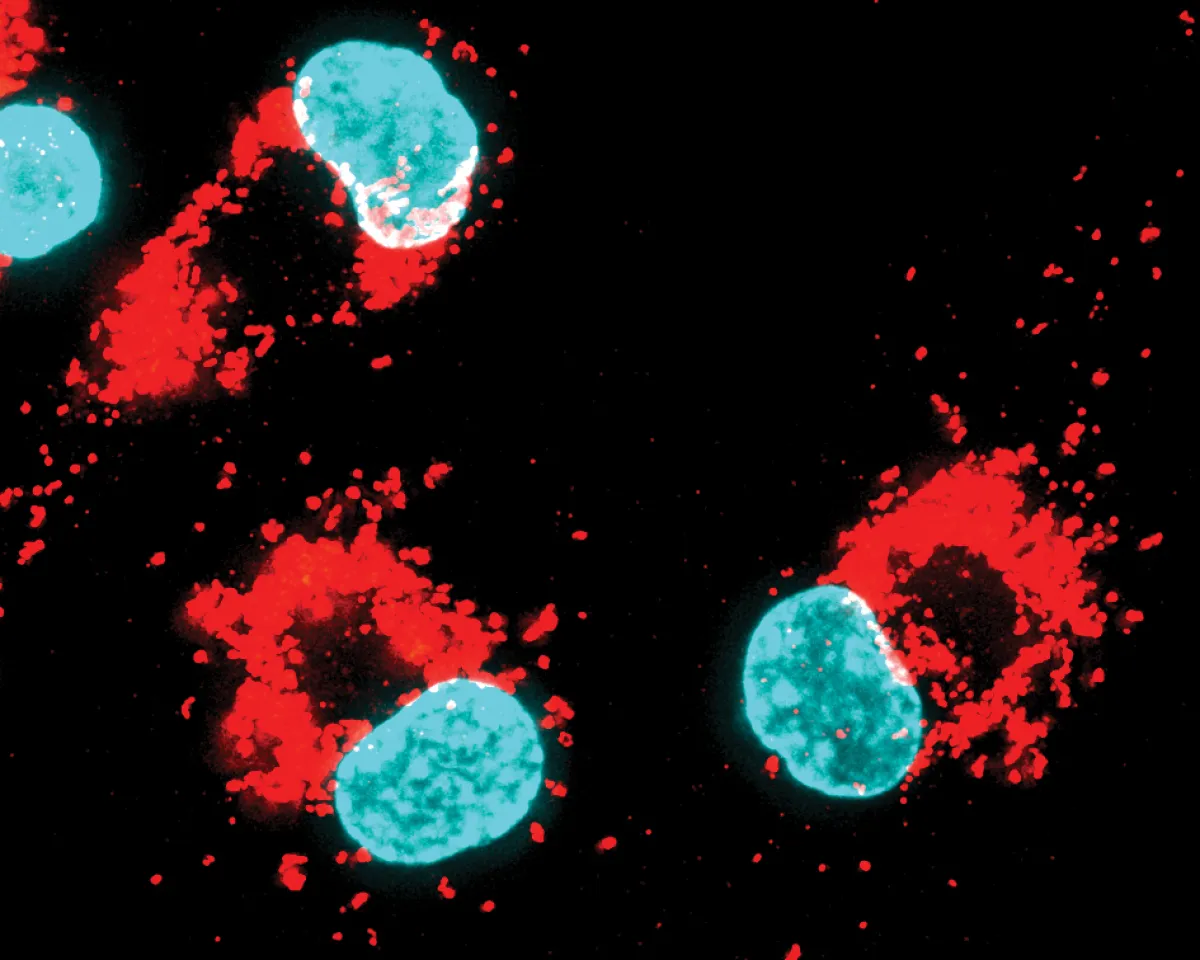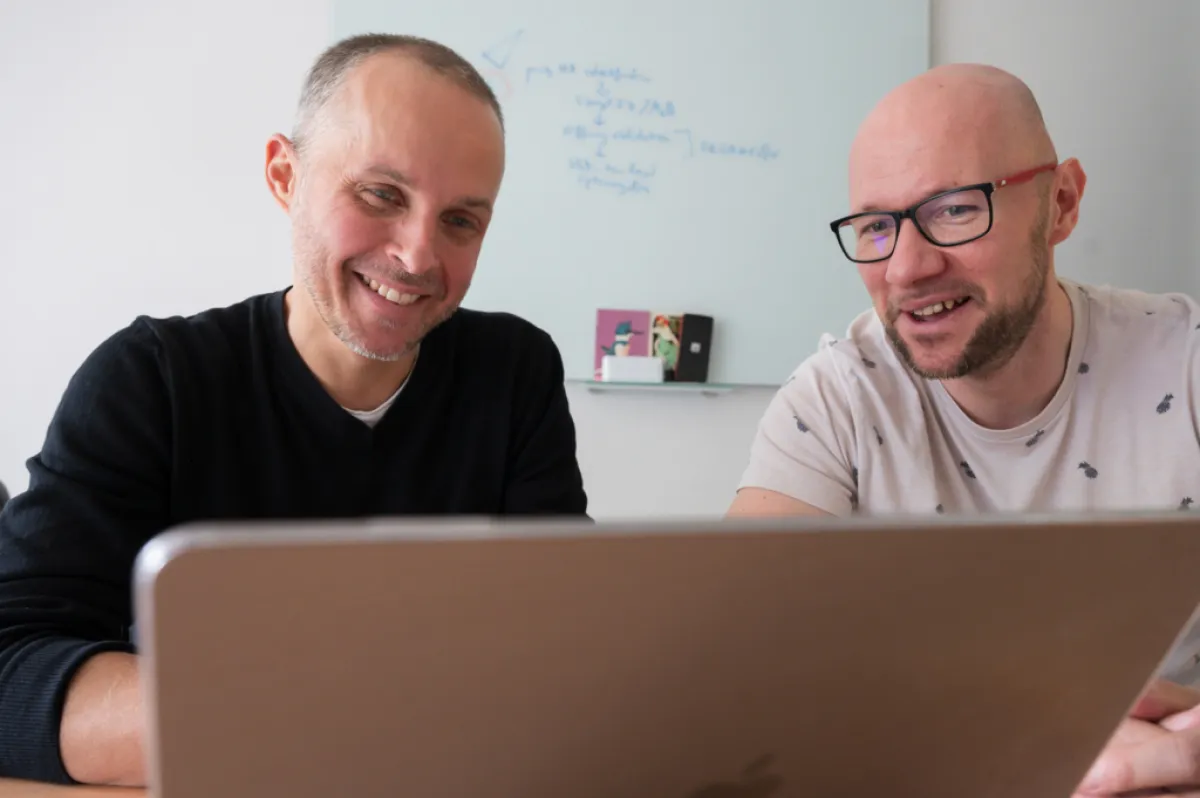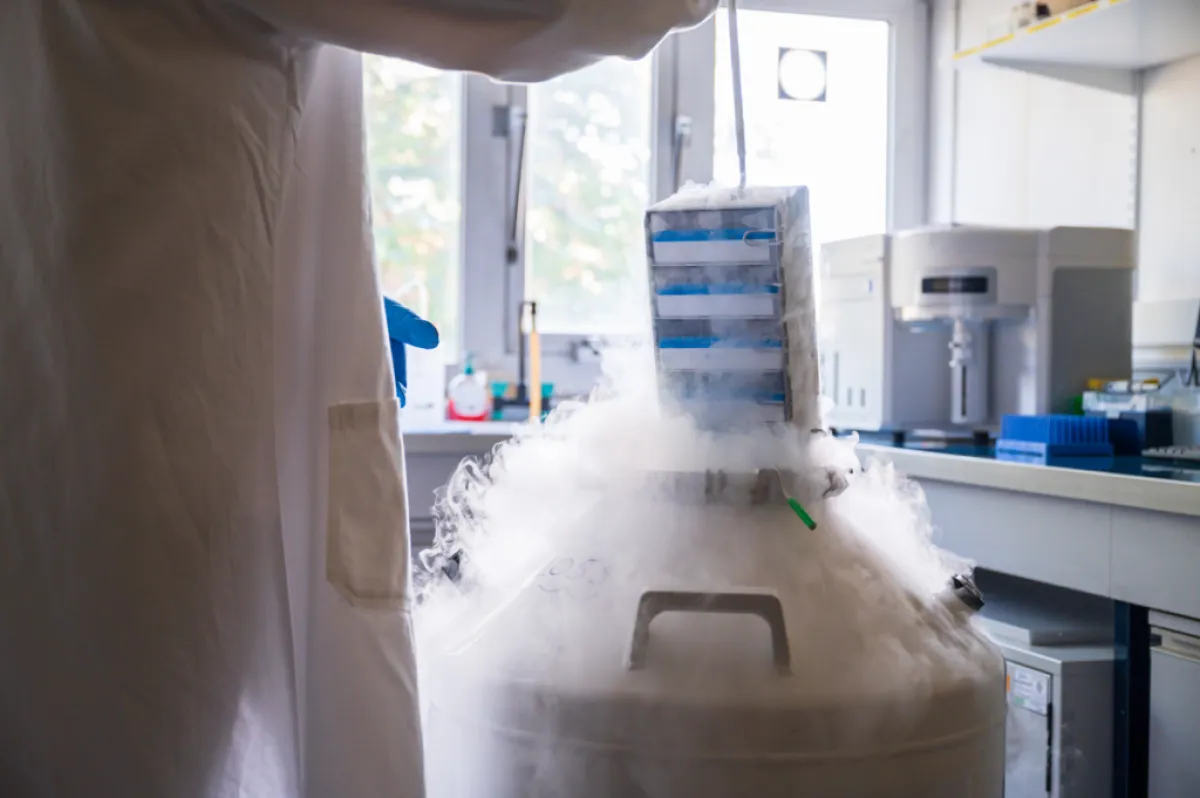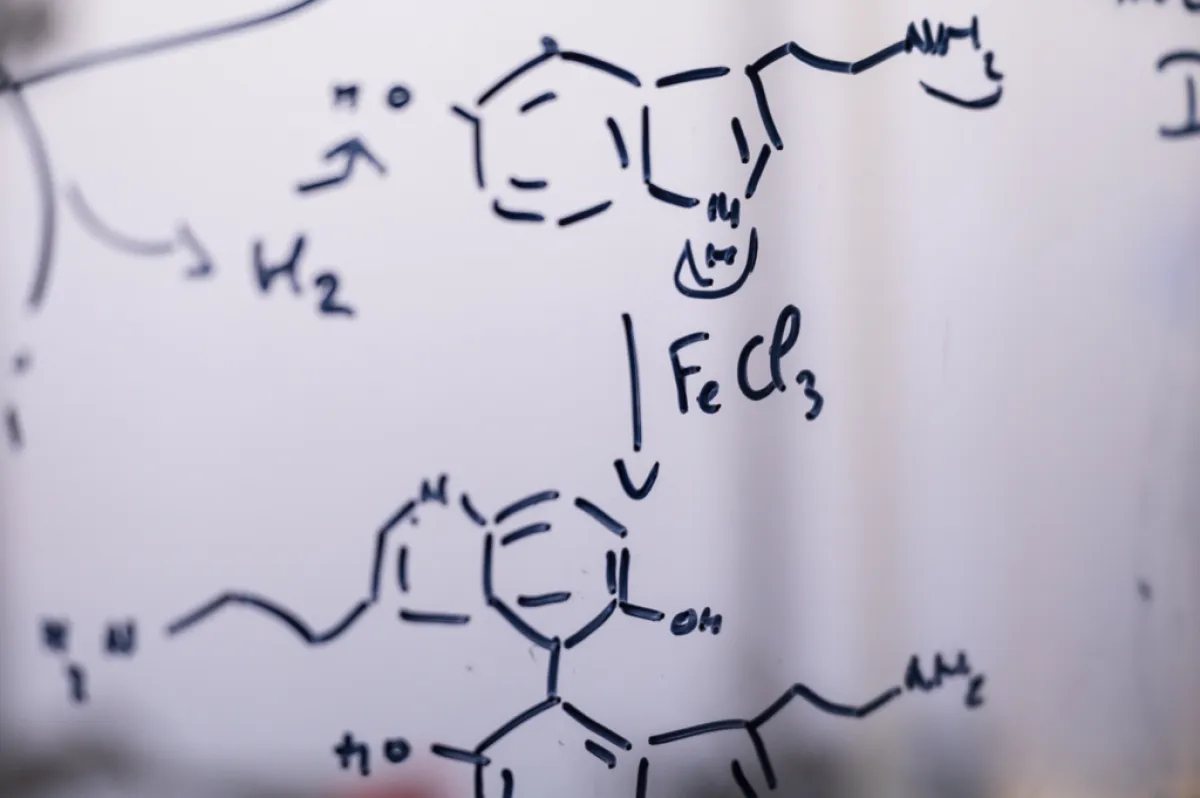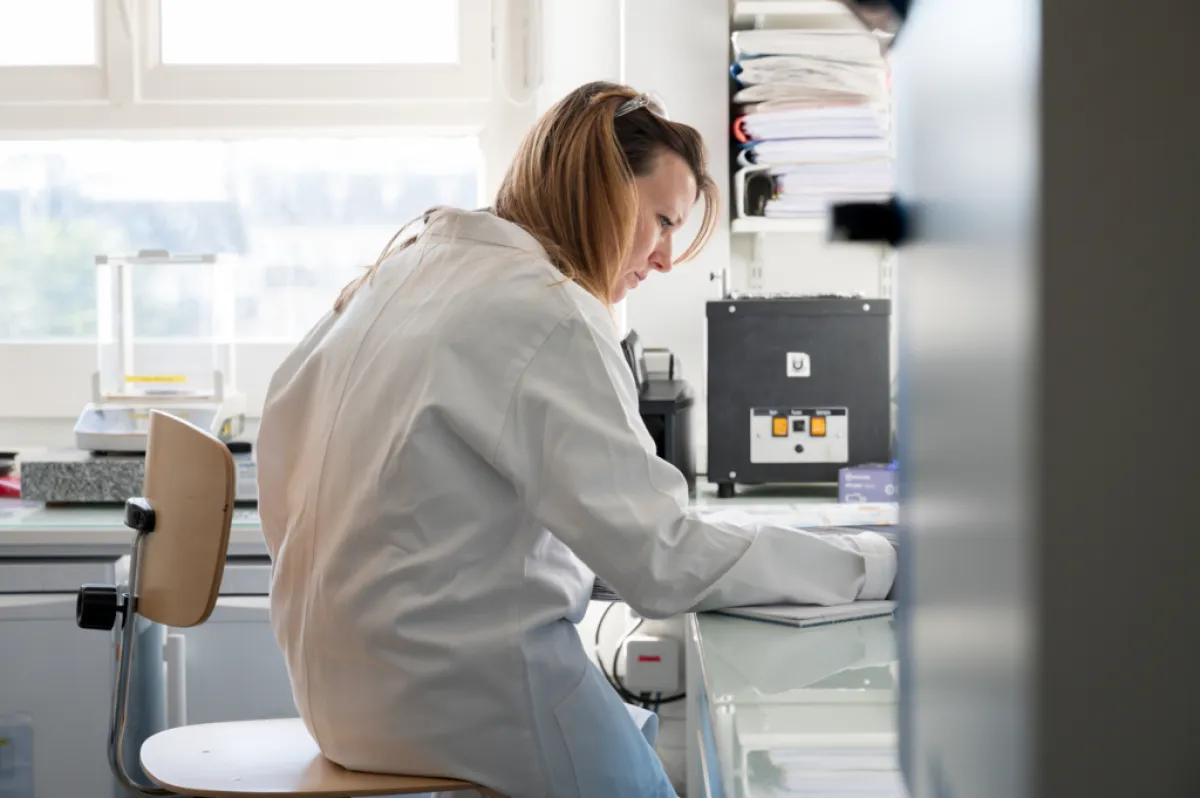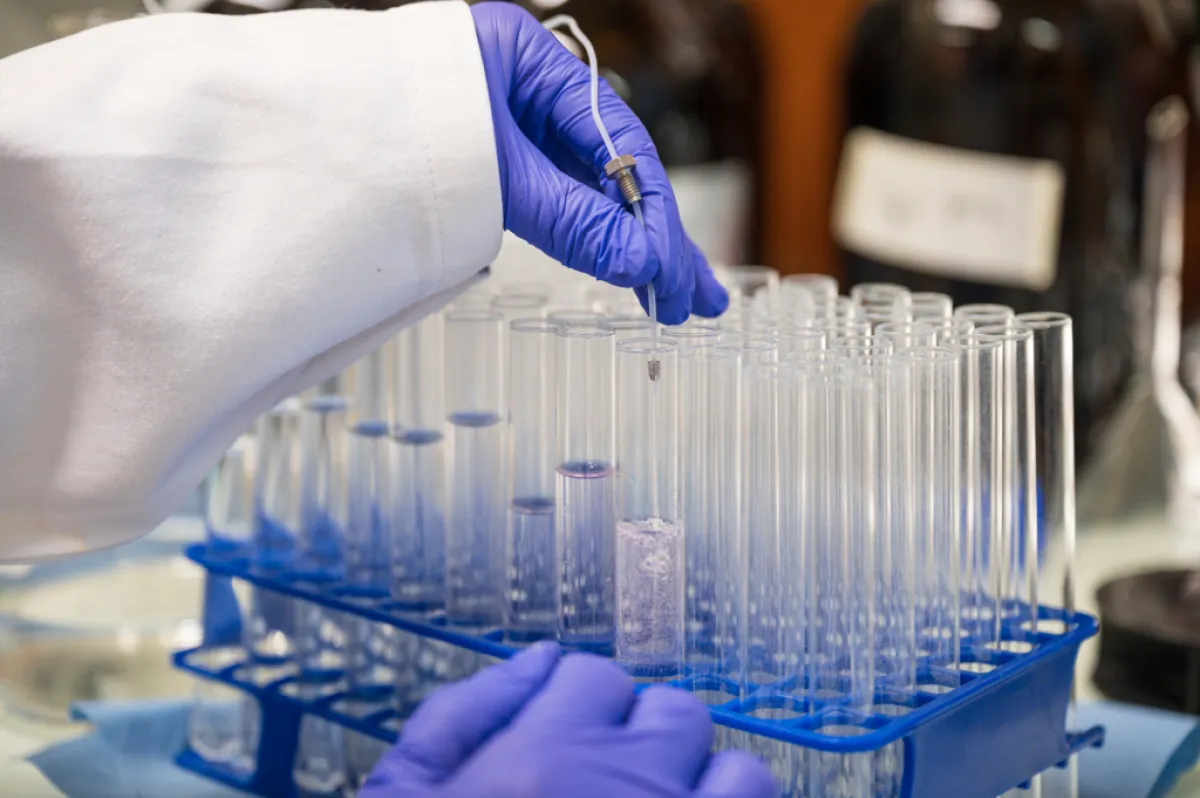Raphaël Rodriguez Using the cell’s chemistry to treat cancer and inflammation
CNRS researcher. Head of the "Chemical Biology" team at the Institut Curie, Paris
- 2023 • Liliane Bettencourt Prize for Life Sciences
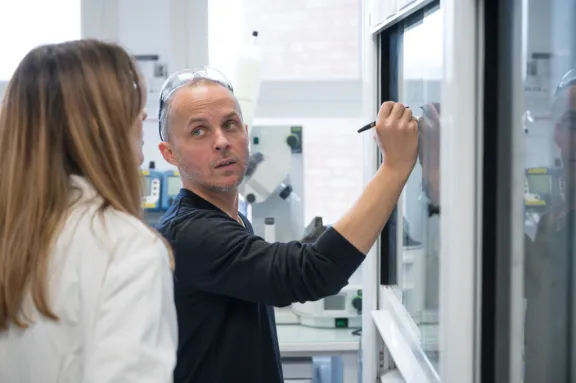
Raphaël Rodriguez has built his career by forging links between chemistry and biology. From Marseille to the Institut Curie in Paris, via Oxford and Cambridge in the United Kingdom, Raphaël Rodriguez’s trailblazing research not only opens up promising avenues for new cancer and inflammation treatments, but also offers an original perspective on the importance of chemistry for the functioning of the cell.
Combining chemistry and biology, a natural process
Raphaël Rodriguez hopes his research will have a positive impact on human health. A chemist by training, he designs small molecules to dissect cellular processes linked to cancer, inflammation and ageing. The effects induced by these small molecules enable him to identify new therapeutic targets. Throughout his career, he has designed protocols for isolating and characterising the targets of small molecules and has developed methods for visualising them in cells to gather information on how they work.
For example, by synthesising marmycin A, Raphaël Rodriguez and his team discovered that this molecule induces the death of cancer cells by targeting lysosomes (cellular organelles for recycling/degrading molecules) and not DNA, as was previously thought. They also elucidated the action mechanism of salinomycin, a natural substance able to eradicate cancer stem cells, which are known to contribute to metastasis and relapse. By synthesising a derivative of the molecule, ironomycin, they showed that these compounds sequester iron in the lysosome, thereby promoting the oxidation of lipids in membranes leading to cell death. Their research revealed that cancer cells are high in iron, making them vulnerable to a particular form of cell death known as ferroptosis. This observation led them to discover a metal absorption mechanism that regulates the plasticity of cancer and immune cells.
In search of the impact on health
Raphaël Rodriguez and his team’s latest discoveries have allowed them to identify signalling pathways involving copper and iron that look like promising avenues for new cancer and inflammation treatments.
They found that some cancer and immune cells upwardly regulate the CD44 protein, which mediates the cells’ uptake of iron and copper. Copper in the cell’s mitochondria (organelles that produce energy, among other functions) seem to stimulate the production of metabolites important for the activity of nuclear proteins that promote the expression of genes linked to metastasis and inflammation. Interestingly, the inactivation of copper by a patented small molecule he developed, supformin, attenuates acute inflammation in vivo.
This way, Raphaël Rodriguez and his team have demonstrated that metals play a key role in regulating transitions between cellular states in cancer and inflammation. The mechanisms, drug targets and vulnerabilities in this signalling pathway could be used for therapeutic intervention, bringing Raphaël Rodriguez closer to his long-term goal of having an impact on health.
« My career has been dominated by the idea that my actions would impact health. »
Raphaël RodriguezLaureate of the 2023 Liliane Bettencourt Prize for Life Sciences
Raphaël Rodriguez in a few words
Born in Avignon, Raphaël Rodriguez obtained his PhD in Marseille and Oxford and did his post-doctoral training in Cambridge (United Kingdom). He was a researcher at the Institut de Chimie des Substances Naturelles (Gif-sur-Yvette) at the CNRS from 2012 to 2015 and has led a research team at the Institut Curie since 2015. Since then, he has received an ERC Consolidator funding and many awards, including the Tetrahedron Young Investigator Award in 2019. He is a fellow of the Royal Society of Chemistry and a Chevalier de l'Ordre National du Mérite.

